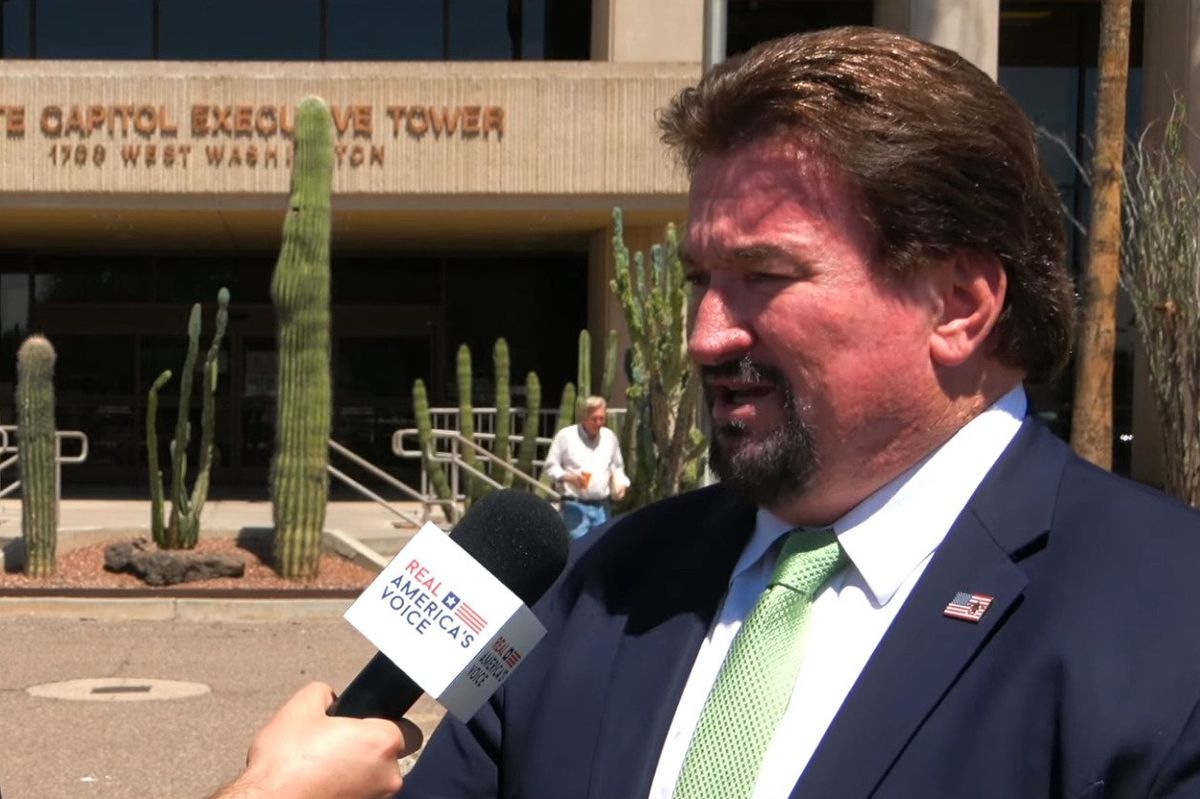Vladimir Putin
A newly released intelligence report indicates that the Russian government acted to “denigrate the Democratic Party” ahead of the 2022 midterm elections. The report suggests that Russia acted against Democrats because of President Joe Biden's effectiveness in unifying Western countries and creating support for Ukraine. In the process, Russia took a truly incredible action in which it traded Russian lives to protect Republican votes.
The declassified report, which is heavily redacted, does not give many details about how Russia worked behind the scenes. However, it is clear about the rationale for why both the Russian government and its proxies sought to help Republicans. “While Russian officials most likely recognized that U.S. support for Ukraine was largely bipartisan, Russian influence actors disproportionately targeted the Democratic Party,” the report concludes, “probably because Moscow blames the U.S. president for forging a unified Western alliance and for Kyiv’s continued pro-Western trajectory,
The report also indicates that China and Iran launched efforts to interfere in the election. Neither of those attempts appears to be as strongly partisan as the Russian interference. China reportedly aimed its efforts at affecting the outcome of “a handful of races.” Iran put its efforts behind decreasing confidence in American democracy, election integrity, and support for Israel.
The assessment indicates that efforts to interfere in the election increased when compared to the 2018 midterms, but did not rise to the “comprehensive, whole-of-government” effort that Russia undertook in 2016. It also concludes that a higher level of inference is expected by multiple countries during the 2024 election cycle.
In its efforts, Russia reportedly used themes designed to reduce U.S. support for Ukraine. Interestingly, efforts to shift the outcome of the election included not just establishing fake accounts on social media sites, but included enlistment of commercial PR firms and “payments to influencers.” If those influencers are named in the report, that information is hidden behind the black bars of redactions … but it would be very interesting to know who took Vladimir Putin’s payment to help erode democracy.
The assessment notes that many of the operations don’t involve overtly false reports. Instead, Russia and other foreign governments are using issues that already generate media attention and partisan friction in America—and “amplifying” those “authentic” public narratives.
This is a technique that Russia has employed going back well into the Soviet Union period. Specifically, Russia has long played up issues of racism in the United States to increase political divisions. A Senate report in 2018 showed how Russia uses a two-pronged approach to increase racial tensions by appealing to racism on the right while deflating Democrats’ efforts to organize Black voters. In the 2016 elections, that even included running ads on radio stations with heavily Black audiences to depress turnout for Hillary Clinton.
At the time of the 2022 elections, support for Ukraine was still relatively high, even among most Republicans. However, one of ways Russia worked to change that was through pressing a message that has not been difficult to find in the news. “As the election neared, Russian influence actors amplified questions about whether US aid to Ukraine if the balance in power shifted after the midterms,” the report says.
In what may be the most astonishing connection to Russia’s efforts to influence the election and events on the ground in Ukraine, the report indicates that Russian military officials “proposed delaying the Russian withdrawal from Kherson until after the midterms to avoid giving a named political party a perceived win before the election.”
The report doesn’t indicate whether this plan was carried out. However, Election Day in 2022 was November 8. Russia announced its withdrawal from Kherson on November 9. Considering the information provided, it’s very hard to view this as a coincidence.
During those final days, Russian forces were low on supplies, Ukrainian troops were advancing, and every moment of delay exposed Russian supplies and equipment to destruction. But Russia was willing to take that risk rather than give Democrats a perceived win ahead of the election. That’s how determined they were to play a role in 2022. Considering how Republicans in Congress have completely stalled America’s assistance to Ukraine, the sacrifices Russia made in Kherson may have been their best investment since the illegal, unprovoked invasion began.
The report concludes that no foreign government is currently working to directly attack U.S. election infrastructure. The assessment notes the difficulty of undertaking any such operation in a broad sense because of the differing systems and layers of security. The intelligence agencies also believe that the warnings that the public attention following Russia’s 2016 interference is still helping to secure elections today. “We also judge that since 2016, senior-level US public and private messaging to foreign about the potential costs of tampering with election systems probably has deterred some of this activity by establishing clear redlines.”
Frustratingly, while the report says repeatedly that China “focused more on efforts to support or undermine specific candidates,” details about which candidates came in for Beijing’s attention are hidden behind redactions. However, these candidates reportedly came from both parties and were targeted for “anti-China” statements. Unsurprisingly, China’s actions included leveraging TikTok to spread social media messages.
Iran’s actions were less targeted at specific campaigns than they were reducing faith in democracy and elections while playing up social divisions (this was considered nonpartisan activity, but it would be easy to see such view efforts as objectively pro-Republican). Iran also created false “personas” on social media “masquerading as left-leaning Americans” that endorsed candidates whom Iran viewed as pro-Palestine or anti-Israel.
The 2022 elections were far from the “red wave” that Republicans were expecting. But it did deliver the House to Republicans. How much that is due to Russia’s efforts to undercut the Democratic Party—including sacrificing forces on the ground in Ukraine to prevent what could have been seen as a win for Biden—was not evaluated in the report. But it would certainly be nice to know which “influencers” got a Putin payday.
Reprinted with permission from Daily Kos.


